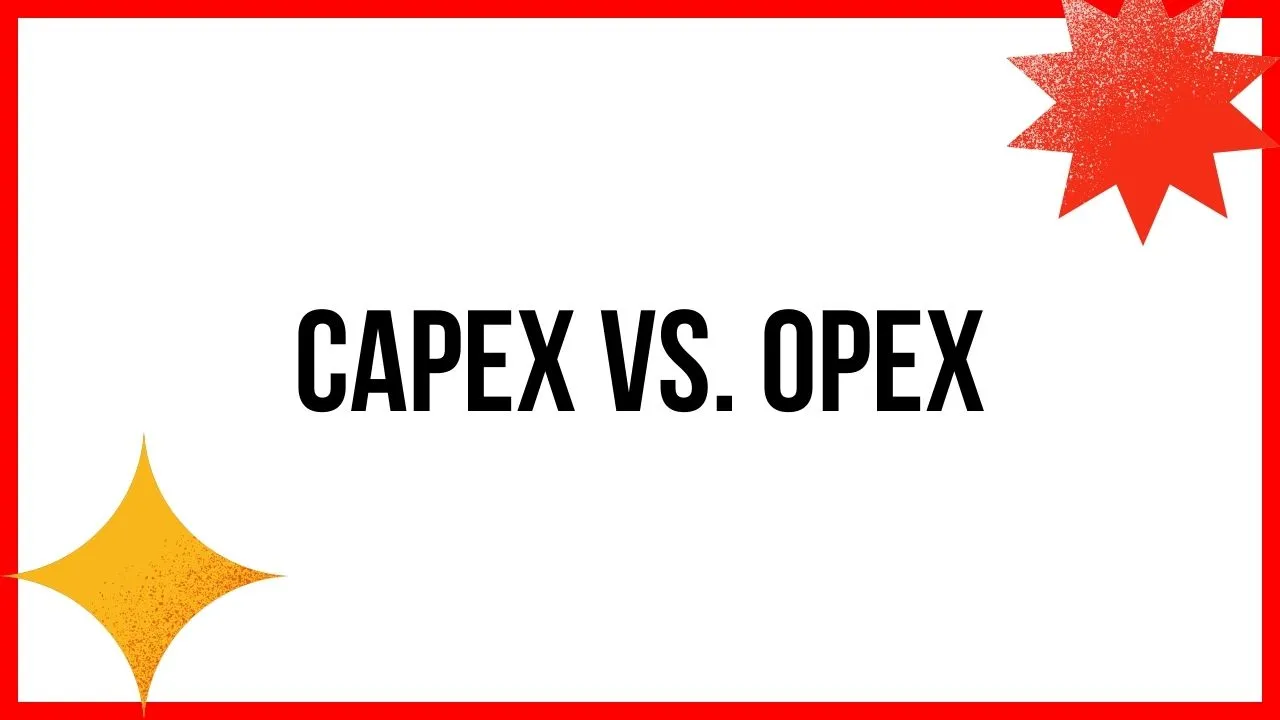In the intricate world of financial decision-making, the choice between Capital Expenditure (Capex) and Operational Expenditure (Opex) holds paramount significance. Our comprehensive analysis delves deep into the intricacies of Capex vs. Opex, shedding light on the nuanced differences and helping businesses make informed choices.
Understanding Capex
Definition
Capital Expenditure, or Capex, represents investments in assets that deliver long-term value to a business. These assets typically include property, equipment, and infrastructure.
Significance
Capex decisions have enduring implications, impacting a company’s growth trajectory and competitiveness. It involves strategic planning to ensure optimal utilization of resources and long-term returns.
Delving into Opex
Definition
Operational Expenditure, or Opex, encompasses day-to-day expenses incurred to run a business. This includes rent, utilities, wages, and other costs associated with the regular functioning of operations.
Significance
While Opex is necessary for sustaining daily activities, it requires careful management to prevent unnecessary expenditures that might impede profitability.
Comparative Analysis
Cost Structure
Capex involves upfront investments with a focus on future returns, whereas Opex deals with ongoing costs necessary for immediate business operations.
Tax Implications
Capex is often subject to depreciation over time, providing tax benefits, while Opex is immediately deductible, affecting short-term tax liabilities.
Flexibility
Opex offers greater flexibility as it can be adjusted based on immediate needs, while Capex commitments are rigid and require long-term planning.
Making the Right Choice
Factors Influencing Decision
- Business Lifecycle: In the nascent stages, companies might prioritize Opex to conserve capital, while mature businesses could lean towards Capex for sustained growth.
- Industry Dynamics: Industries with rapid technological advancements may opt for Opex to stay agile, whereas those with stable environments might prefer Capex for long-term stability.
- Financial Health: Assessing the financial standing is crucial; a robust financial position allows for more extensive Capex investments.
Decision-Making Flowchart
Conclusion
In the ever-evolving landscape of business finance, the choice between Capex and Opex is a critical determinant of success. By understanding the nuances and carefully weighing the factors influencing the decision, businesses can make informed choices that align with their long-term goals.
FAQs: Navigating the Capex vs. Opex Conundrum
1. What is the primary difference between Capex and Opex?
Answer: The fundamental disparity lies in the nature of expenses. Capex involves long-term investments in assets, while Opex deals with day-to-day operational costs.
2. How do tax implications differ for Capex and Opex?
Answer: Capex investments often benefit from depreciation over time, providing long-term tax advantages. Opex, on the other hand, allows for immediate deductibility, impacting short-term tax liabilities.
3. Can businesses adjust their expenses easily with Capex and Opex?
Answer: Opex offers greater flexibility as it can be adjusted based on immediate needs. Capex, being a long-term commitment, requires careful planning and is less adaptable.
4. What role does the business lifecycle play in choosing between Capex and Opex?
Answer: In the early stages, businesses might prioritize Opex to conserve capital, while mature enterprises may lean towards Capex for sustained growth and stability.
5. Are there specific industries more inclined towards Capex or Opex?
Answer: Industries with rapid technological advancements often prefer Opex for agility, whereas stable environments may opt for Capex to ensure long-term stability.
6. How does financial health impact the Capex vs. Opex decision?
Answer: A robust financial position allows businesses to make more extensive Capex investments. Assessing financial health is crucial in determining the feasibility of such commitments.
7. Can a business simultaneously focus on both Capex and Opex?
Answer: Yes, a balanced approach is possible. Businesses may strategically allocate resources to both Capex and Opex based on their specific needs, industry dynamics, and growth objectives.
8. Is Opex always immediately deductible for tax purposes?
Answer: While Opex is generally immediately deductible, specific rules and regulations may vary. It’s essential to stay informed about tax laws and consult with financial experts for accurate advice.
9. How does industry competition influence the Capex vs. Opex decision?
Answer: Industries with intense competition may lean towards Opex for quick adaptability, while those with fewer competitors might opt for Capex to gain a competitive edge through long-term investments.
10. Can a business change its approach from Capex to Opex or vice versa?
Answer: Yes, businesses can reassess their financial strategy over time. Changes in industry dynamics, financial health, or business goals may prompt a shift from Capex to Opex or vice versa. It’s crucial to regularly evaluate and adapt the approach based on evolving circumstances.

